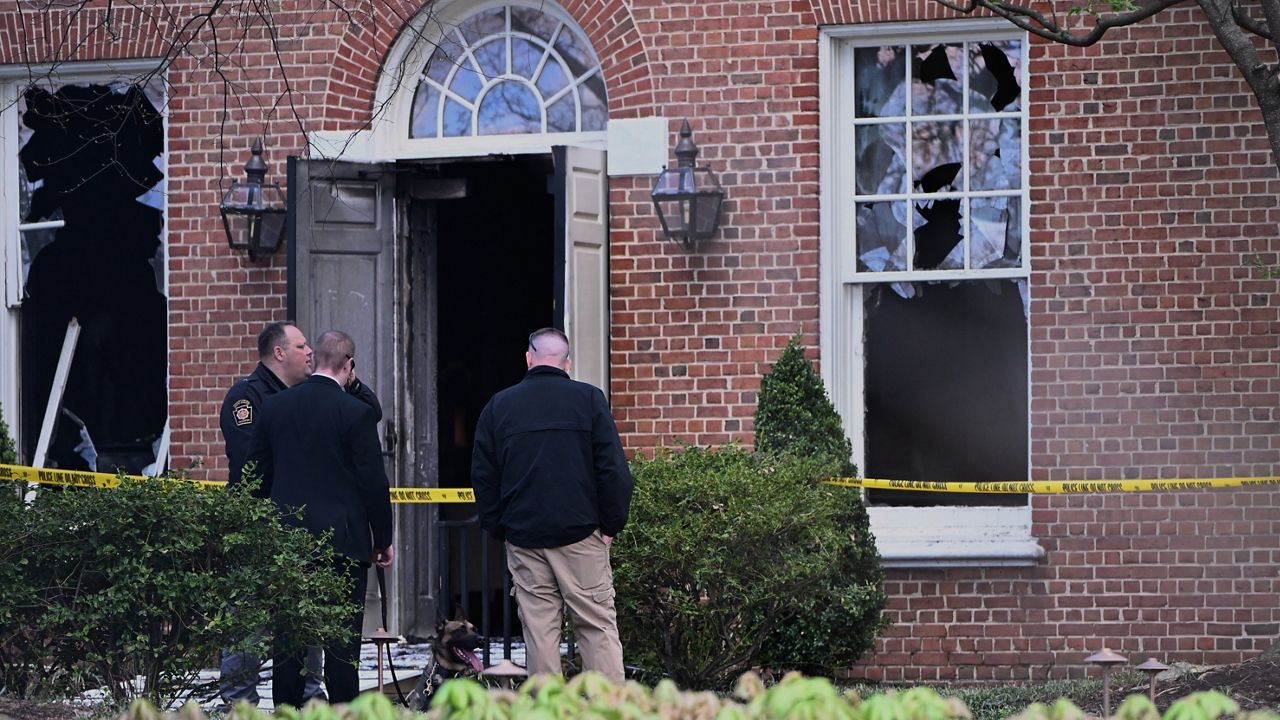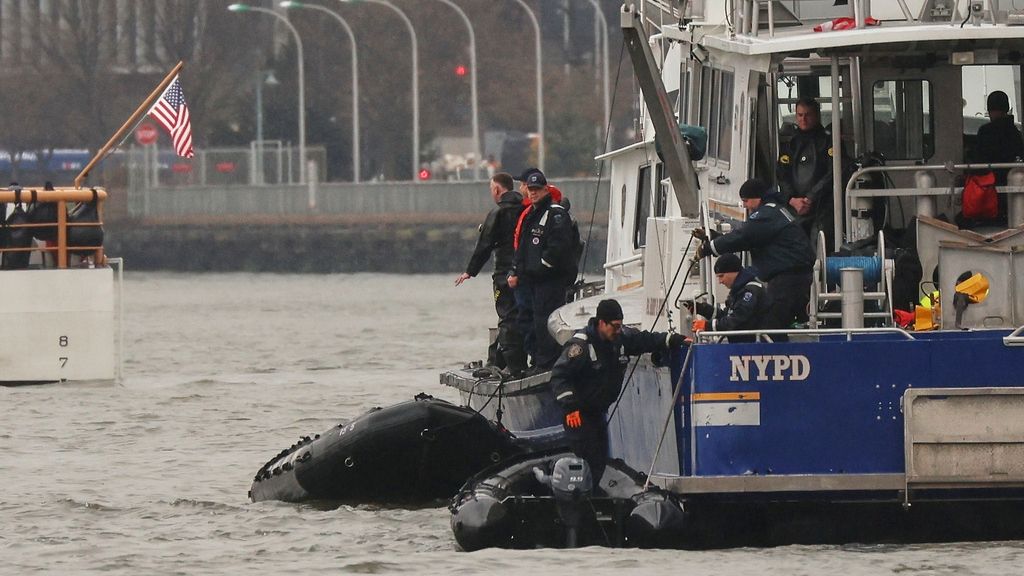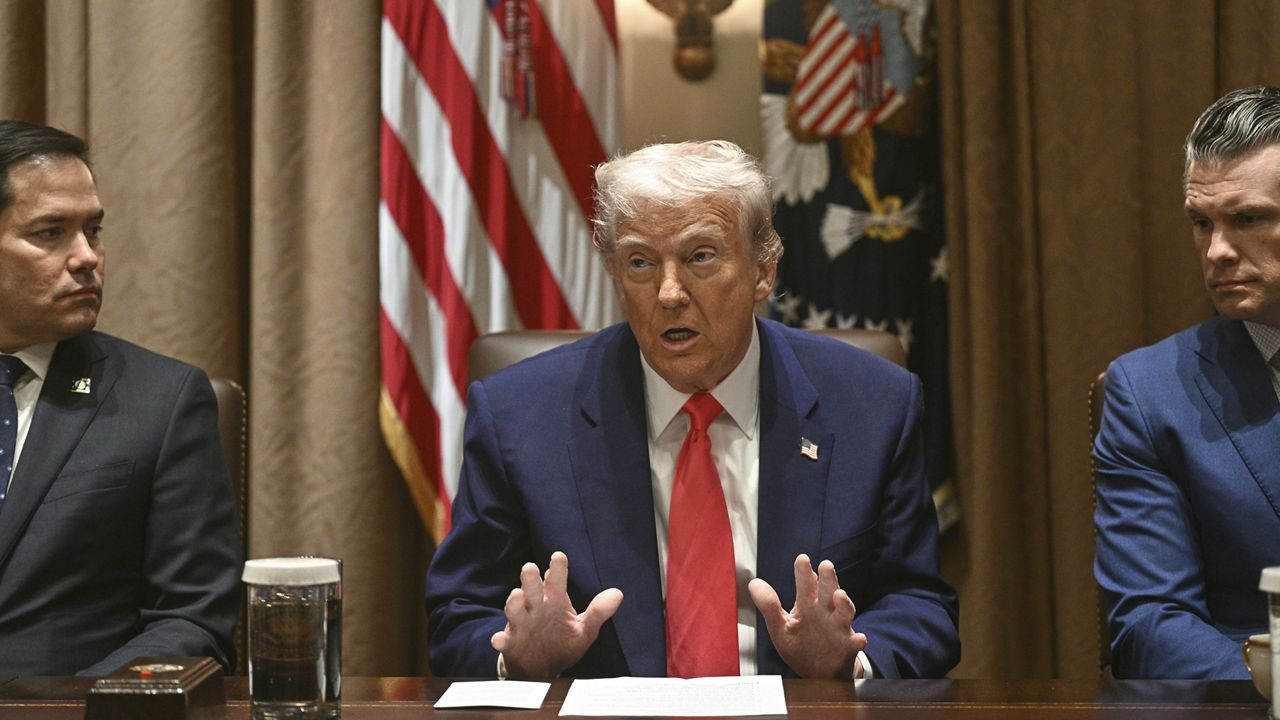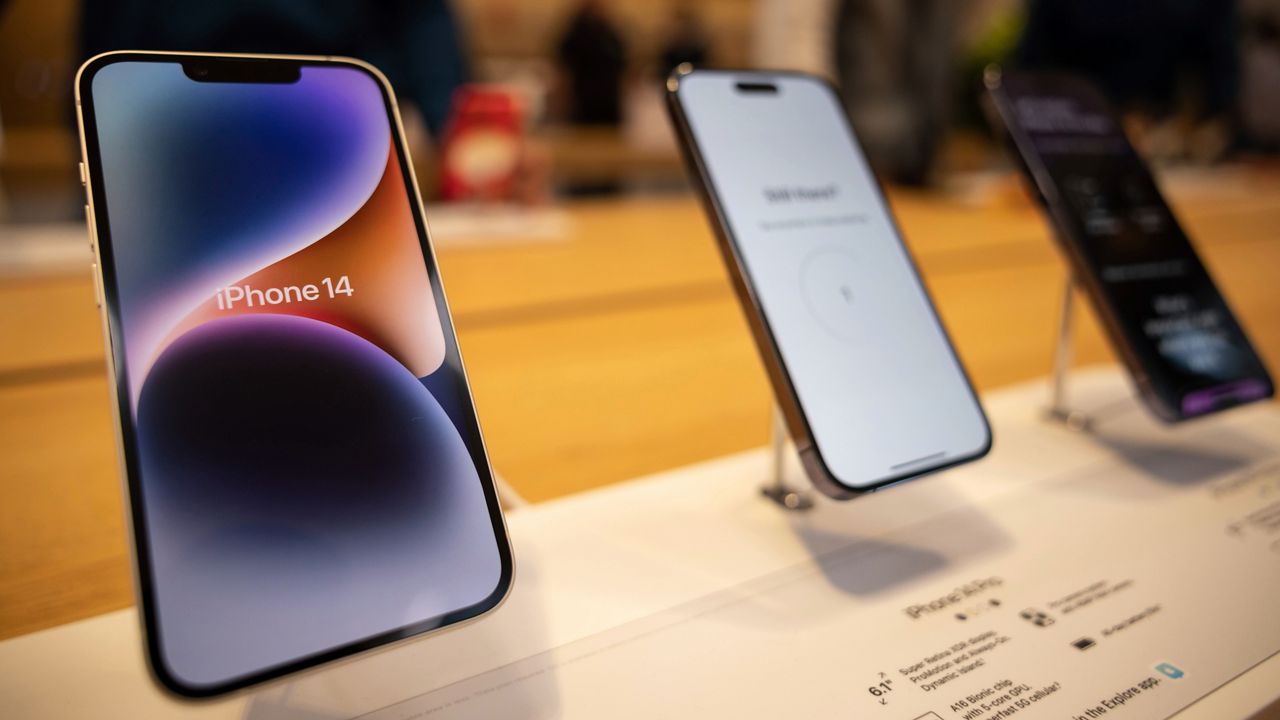The Supreme Court appeared divided Thursday over whether former President Donald Trump should receive immunity against federal charges that he tried to illegally overturn the 2020 presidential election.
What You Need To Know
- The Supreme Court appeared divided Thursday over whether former President Donald Trump should receive immunity against federal charges that he tried to illegally overturn the 2020 presidential election
- Trump faces four felony counts in the Washington, D.C., case filed by special counsel Jack Smith, including conspiracy to defraud the United States, two charges related to obstructing an official proceedings and conspiracy against rights
- Trump and his attorneys argue that his efforts disputing the election were done in his capacity as president and should be protected from criminal prosecution
- But Michael Dreeben, the Justice Department attorney for the special counsel, argued no president should be able to evade any criminal charges after leaving office
Trump faces four felony counts in the Washington, D.C., case filed by special counsel Jack Smith, including conspiracy to defraud the United States, two charges related to obstructing an official proceedings and conspiracy against rights.
The former president and presumptive Republican nominee this year is accused of participating in a scheme to submit slates of fake electors to Congress as he falsely alleged widespread fraud cost him the election. He has pleaded not guilty to the charges.
Trump and his attorneys argue that his efforts disputing the election were done in his capacity as president and should be protected from criminal prosecution.
“Without presidential immunity from criminal prosecution, there can be no presidency as we know it,” Trump attorney D. John Sauer said in his opening remarks to the Supreme Court. “ … If a president can be charged, put on trial and imprisoned for his most controversial decisions as soon as he leaves office, that looming threat will distort the president's decision making precisely when bold and fearless action is most needed. Every current president will face de facto blackmail and extortion by his political rivals while he is still in office.”
But Michael Dreeben, the Justice Department attorney for the special counsel, argued no president should be able to evade any criminal charges after leaving office.
“Such presidential immunity has no foundation in the Constitution,” he said. “The framers knew too well the dangers of a king who could do no wrong. They therefore devised a system to check abuses of power, especially the use of official power for private gain.”
Sauer acknowledged former presidents could face criminal charges for purely personal acts. For any crimes committed in office, he argued Congress must impeach and convict the president — which has never happened in the nation’s history — before criminal charges could be brought.
Justice Sonia Sotomayor resurfaced a scenario raised in an appeals court: Could a former president be charged criminally if he orders the military to assassinate a political rival?
Sauer said “it would be depend on the hypothetical” and “could well be an official act.”
“He's doing it for personal gain,” Sotomayor replied. “And isn't that the nature of the allegations here? That he's not doing these acts in furtherance of an official responsibility. He's doing it for personal gain.”
Much of the debate focused on what constituted an official act and a personal one.
Chief Justice John Roberts argued the two were sometimes hard to separate. In a hypothetical about a president receiving a bribe in exchange for appointing someone an ambassador, Roberts argued the bribe was for personal gain while the appointment was an official act. Sauer had claimed such a scenario would not be official and therefore subject to prosecution.
Sauer called for all official acts to be wiped from the indictment. Roberts said that would be “like a one-legged stool.”
“If you say you have to expunge the official part, how does that go forward?” Roberts asked.
Some of the conservative justices appeared to believe presidents should enjoy some level of immunity. Determining where the line might be was a point of debate.
Justices Brett Kavanaugh and Neil Gorsuch asked questions indicating they might believe a president must violate a clearly stated statute to be charged.
“So that the president’s on notice and can conduct himself or herself accordingly,” Kavanaugh said.
Kavanaugh also argued the statute for defrauding the United States is “vague” and “can be used against a lot of presidential activities historically with a creative prosecutor who wants to go after a president.”
Justice Amy Coney Barrett, however, questioned Sauer on how it would be possible for Congress to ever impeach and convict a president over statutes that do not explicitly mention the office.
“How can you say that he would be subject to prosecution after impeachment while at the same time saying that he's exempt from these criminal statutes?” she asked.
Dreeben argued there are a layers of protection to prevent political prosecutions of former presidents, including that attorneys general and federal prosecutors can be trusted, charges must clear federal grand juries and former presidents receive the same protecting as all criminal defendants.
Justice Samuel Alito seemed unimpressed, noting two U.S. attorneys general that have been convicted of crimes, that there’s a low bar for indictments and that, if indicted, a lot of time can pass before an innocent former president is vindicated.
Alito also pressed Dreeben on the possibility that a president could be charged with crimes for making a mistake based on the information that was available to him at the time.
“Presidents have to make a lot of tough decisions about enforcing the law,” Alito said. “Did I understand you to say, ‘Well, you know, if he makes a mistake, he makes a mistake. He's subject to the criminal laws just like anybody else’? You don’t think he’s in a peculiarly precarious position.”
Dreeben countered that a president has access to legal advice before making decisions and is under a constitutional obligation to be faithful to U.S. laws and the Constitution.
The liberal justices appeared concerned about the precedent that would be set if the court issues a ruling giving a president absolute immunity.
“Wouldn't there be a significant risk that future presidents would be emboldened to commit crimes with abandon while they're in office?” Justice Ketanji Brown Jackson asked Sauer.
She suggested that the reason no president had been charged with any crimes before Trump was because of an understanding that they were subject to prosecution.
“Why would we have a situation in which we would say that the president should be making official acts without any responsibility for following the law?” Jackson added.
Gorsuch said if presidents do not believe they have criminal immunity, they would have an incentive to grant themselves blanket pardons before leaving office. He, however, noted that Supreme Court has never taken up whether self-pardons are legal.
Lower courts have previously rejected Trump’s claims of immunity and have said that the ex-president is not immune from prosecution. A federal appeals court wrote that accepting Trump’s argument would “collapse our system of separated powers.”
The election interference case was set to go to trial in early March, but was put on hold indefinitely amid Trump’s appeal. The Supreme Court has faced some criticism for delaying the case further by hearing the case.
While the Supreme Court has held that the president can’t be held liable in civil cases, this is the first time it is weighing in on the question of criminal prosecution.
A 1973 opinion by the Justice Department’s Office of Legal Counsel stated that a sitting president cannot be charged criminally because the possibility would effectively incapacitate the presidency.
Spectrum News’ Justin Tasolides and Maureen McManus contributed to this report.
Ryan Chatelain - Digital Media Producer
Ryan Chatelain is a national news digital content producer for Spectrum News and is based in New York City. He has previously covered both news and sports for WFAN Sports Radio, CBS New York, Newsday, amNewYork and The Courier in his home state of Louisiana.









